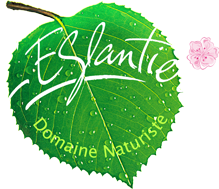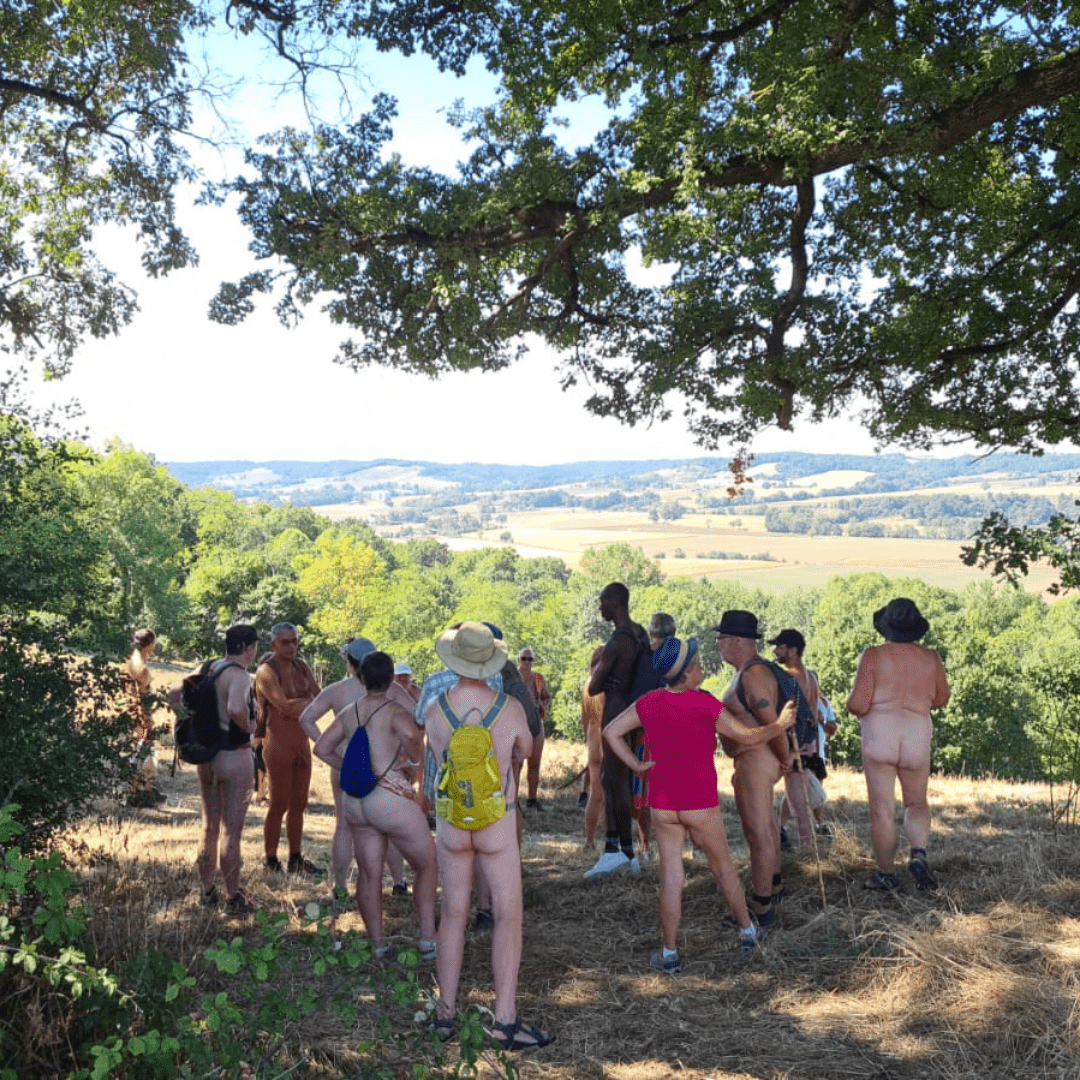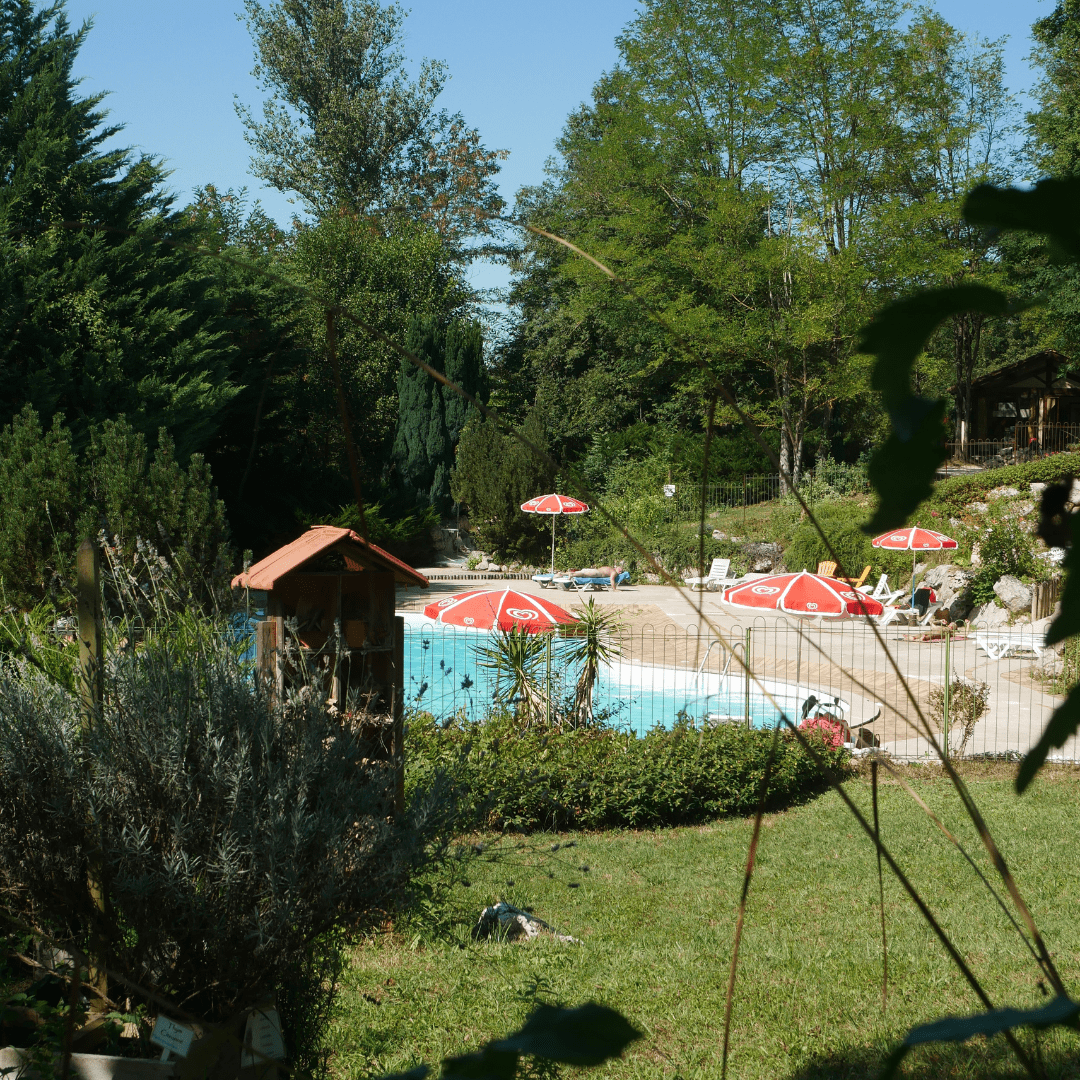Naturism
What's the difference between naturism and nudism?
If you talk to the guests at L’Eglantière, or to anyone who works here, pretty much everyone will tell you that they call themselves naturists. Not only in our domain though, but all over Western Europe, naturism is the most commonly accepted term. But you may have also heard about the term nudism. So what is the difference? Are you a naturist or a nudist? And are nudists welcome at naturist campsites? Let us explain.
Important to mention is that the usage of the terminology differs from region to region. While naturism is the most used term in Europe, Americans will much more often talk about nudism. Except for Canadians, who also call themselves naturists. In order to not make this blog post super complicated, let’s focus on what these terms mean in Europe.
What is naturism?
We, Europeans, see naturism as much more than just being naked. It’s a way of living, a philosophy, a community. The foundation of naturism is respect. For yourself, for others, and for your surroundings. Because of this respect for each other, we can comfortably be naked among friends and strangers without having to fear judgement or negative remarks.
Respect for our surroundings makes sure that we can enjoy beautiful unpolluted nature. You’ll typically find much less litter at naturist campsites and even at public beaches, naturist beaches tend to be much cleaner than textile ones.
Naturism is often called a way of living or philosophy because we also take these values into the “outside world”. We don’t have to be naked to respect nature and the people around us. Naturism doesn’t stop at the gate of the campsite.
What is nudism?
You have to know that naturism has gone through a transformation during the last century. In the beginning, it was a movement with very strict rules. Other than enjoying communal nudity, naturists also didn’t eat meat, didn’t drink alcohol, and didn’t smoke.
It’s a bit vague how nudism exactly originated, but the commonly accepted explanation is that it was a counter-revolutionary response from those who also enjoyed communal nudity, as well as a good steak and a glass of wine. The difference between naturism and nudism can easily be found in the name: In nude-ism, the emphasis is on nudity. In nature-ism, it’s much more about nature, of which the human body is obviously a part.
What is FKK?
In German-speaking countries, but also in central and eastern Europe, you may find a third term. FKK is short for “Freikörperkultur”, which can be literally translated to “free body culture”. It’s a social movement that originated at the end of the 19th century and that is based on the health aspects of air and sunlight. The idea was that the more skin we allow to absorb the elements, the healthier we will be.
While the name “free body culture” might suggest that FKK relates more to nudism, the movement is actually considered the predecessor of naturism. In the early 20th century, some FKK aficionados started adding more and more values to their lifestyle, making it about much more than just absorbing sunlight and fresh air to improve their health. Naturism was born.
Naturism, nudism, and FKK in the 21st century
While naturism, nudism, and FKK meant very distinct things in the past, today, they have grown much closer to each other. FKK is still frequently used in some parts of Europe, but most will agree that the term is interchangeable with naturism.
Throughout history, naturist organisations have also realised that their strict policies were blocking the growth potential of the movement, and started to loosen up. Today, it’s very common to see a naturist having a beer while lighting up the barbecue. The number of naturist clubs where meat and alcohol are still forbidden has become little to none.
Nudists, on the other hand, started to mingle more and more with naturists and adapted the naturist values. It’s often said that many naturists start as nudists. They visit a naturist campsite because they are interested in social nudity, but soon they begin to appreciate the respectful environment and the other values of naturism as well.
In 2014, the International Naturist Federation INF-FNI even added the term “nudism” to its official definition of naturism.
What are you?
As we already mentioned in the introduction, if you are European, it’s quite likely that you will call yourself a naturist. Because it’s the most commonly accepted term in this part of the world, but also because nudism has a bit of an undertone in Europe.
It’s all about perception. Some European naturists will still correct you if you accidentally call them nudists. Because they want to emphasise that what they do is about much more than just being naked. But in reality, how you decide to call yourself is of little importance compared to the values that you believe in.
Are nudists welcome at L’Eglantière?
Our campsite is called a “domaine naturiste”, a naturist domain. This does not mean that you need to be a naturist or call yourself one to be welcome. As far as we’re concerned, you can call yourself a naturist, a nudist, anything else, or nothing at all. We don’t really care.
What is important to us is that you believe in the naturist values. That you appreciate the benefits of social nudity, that you treat the other guests in a respectful way, and that you enjoy being in unpolluted nature. And we can tell you, we have a lot of beautiful nature over here!


